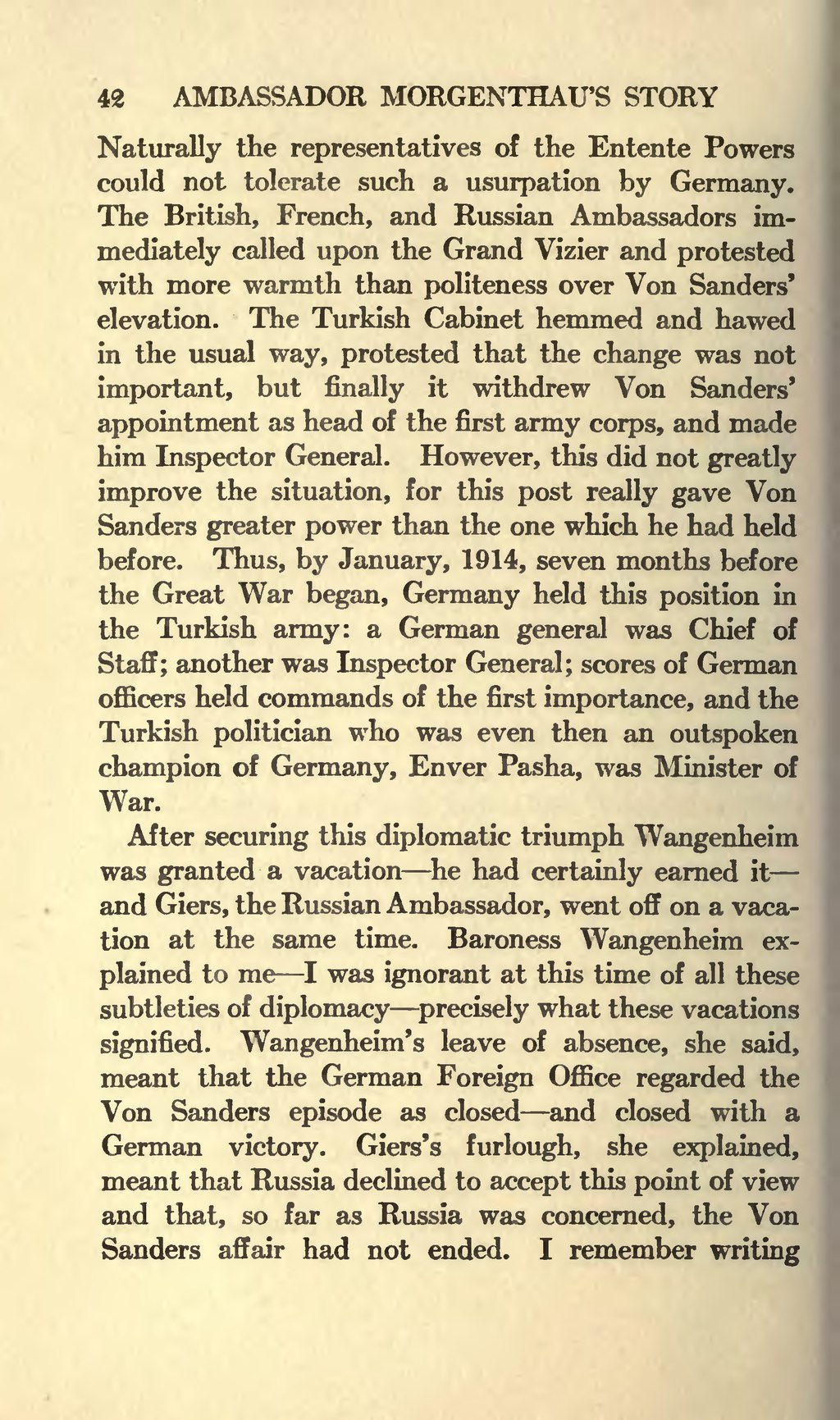Naturally the representatives of the Entente Powers could not tolerate such a usurpation by Germany. The British, French, and Russian Ambassadors immediately called upon the Grand Vizier and protested with more warmth than politeness over Von Sanders' elevation. The Turkish Cabinet hemmed and hawed in the usual way, protested that the change was not important, but finally it withdrew Von Sanders' appointment as head of the first army corps, and made him Inspector General. However, this did not greatly improve the situation, for this post really gave Von Sanders greater power than the one which he had held before. Thus, by January, 1914, seven months before the Great War began, Germany held this position in the Turkish army: a German general was Chief of Staff; another was Inspector General; scores of German officers held commands of the first importance, and the Turkish politician who was even then an outspoken champion of Germany, Enver Pasha, was Minister of War.
After securing this diplomatic triumph Wangenheim was granted a vacation—he had certainly earned it—and Giers, the Russian Ambassador, went off on a vacation at the same time. Baroness Wangenheim explained to me—I was ignorant at this time of all these subtleties of diplomacy—precisely what these vacations signified. Wangenheim's leave of absence, she said, meant that the German Foreign Office regarded the Von Sanders episode as closed—and closed with a German victory. Giers's furlough, she explained, meant that Russia declined to accept this point of view and that, so far as Russia was concerned, the Von Sanders affair had not ended. I remember writing
